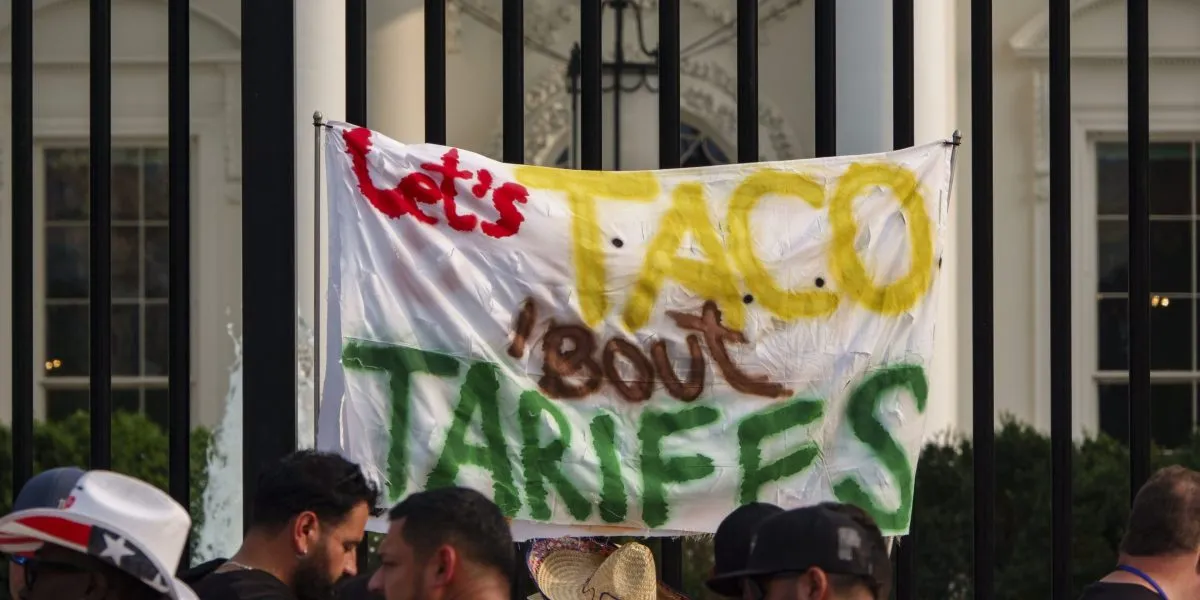
In recent weeks, the stock market has experienced a surprising rebound, reaching new record-highs. This recovery can largely be attributed to the TACO trade, a term coined to describe the market's initial belief that President Trump would back down from proposed tariffs, similar to previous patterns. However, as the situation unfolds, it appears that markets may have underestimated the potential risks associated with Trump's aggressive tariff policies.
President Trump has used the stock market's recent performance to justify the continuation of his tariff rates. In an interview with NBC News, he stated, “I think the tariffs have been very well received. The stock market hit a new high today.” He suggested a baseline tariff rate of 15%-20%, which is significantly higher than the current level of 10% imposed across the board. This announcement coincided with his ongoing communication with U.S. trading partners regarding impending tariff rates that could take effect by August 1 if trade agreements are not reached.
On Saturday, Trump escalated tensions by threatening the European Union and Mexico with potential tariffs as high as 30%. Although many view these letters as mere negotiating tactics, the stock market has responded by pulling back from its all-time highs. Analysts from Capital Economics noted that uncertainty surrounding the TACO trade has begun to seep into the markets, stating, “Markets appear to believe that Trump will again back down. We are not so sure.”
Despite the looming tariffs, Trump chose not to reimpose reciprocal tariffs on Wednesday when a 90-day pause was set to expire. However, his new timeline for August 1 offers limited breathing room for negotiations aimed at averting the steep rates outlined in his communications. In addition to potential tariffs on broader imports, Trump has announced specific duties, including a staggering 50% tariff on copper and the possibility of 200% tariffs on imported pharmaceuticals.
So far, the stock market has avoided a meltdown similar to April's, when the S&P 500 plummeted nearly 20% from its previous high, flirting with a bear market. The market's relatively muted reaction may be attributed to the TACO trade. However, analysts warn that this complacency could pose risks. Capital Economics remarked that the original shelving of Trump’s “Liberation Day” tariff plans was largely due to market sell-offs in both equity and Treasury markets.
JPMorgan CEO Jamie Dimon has expressed concerns that investors are becoming too complacent regarding the risks posed by Trump's tariffs. Similarly, UBS highlighted the paradox between the TACO trade and Trump's actions. Economists at Bank of America pointed out the market's failure to push back against Trump’s new tariff initiatives, describing it as “the game that never ends.” As the stock market continues to downplay the latest shocks, consumer confidence remains stable, reducing the pressure on the administration to de-escalate.
As the situation develops, it raises critical questions about how much risk assets are willing to tolerate before they correct lower and how much pain Trump is prepared to absorb before he opts for de-escalation, similar to the events of April. Bank of America emphasized that the dynamic between Trump and Wall Street is subject to multiple equilibria, suggesting that both parties may continue to engage in this ongoing tug-of-war.
In conclusion, the interplay between Trump's tariff policies and the stock market remains a pivotal narrative, with potential ramifications for investors and the economy at large. As we move closer to the August deadline, all eyes will be on the markets and the administration's next moves.